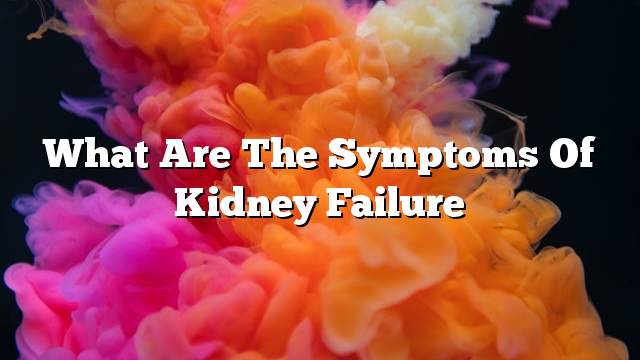Kidneys
The kidneys are located at the bottom of the back area of the human body on both sides of the spine, to act as a blood vessel and detoxify the body by transferring toxins to the bladder to be expelled out during urination.
renal failure
Kidney failure occurs when kidneys lose their ability to filter blood from toxins, along with several other factors that interfere with kidney dysfunction such as exposure to toxic substances, environmental contaminants, chemical preservatives and many renal failure diseases, and may lead to kidney failure Renal disease) sometimes to death by accumulation of toxins in the body.
Causes of renal impairment
Causes of renal insufficiency include loss of blood flow to the kidneys, resulting in heart failure, heart attacks, heart disease and cirrhosis, as well as dehydration, severe burns and infections, as well as the use of some anti-inflammatory drugs. Kidney failure, vascular inflammation, small vasculitis in the kidneys, urinary hemolytic syndrome, plasma cell carcinoma of the bone marrow, scleroderma, use of chemotherapy drugs, and certain antibiotics.
Renal insufficiency
Kidney failure refers to several types of kidney failure: kidney failure due to inadequate delivery of blood to the kidneys; the other type of kidney failure resulting from a sudden obstruction that affects the flow of urine from the kidneys. The third type is due to a decrease in blood delivery to the kidneys. Kidneys for a long time, kidneys begin to shrink and slowly work until the stop.
Symptoms of renal impairment
Symptoms of renal impairment, swelling of the legs, ankles and feet, undue distress in breathing, drowsiness or fatigue, nausea, confusion, pain or chest compression and other coma sometimes.
Diagnosis and treatment of the disease
Kidney failure is diagnosed by urine analysis, by measuring the amount of urine, along with blood samples to measure kidney-filtered substances such as urea and creatinine, along with some imaging tests such as ultrasound, magnetic resonance imaging, and computed tomography Ray. Treatment of renal failure is through what is known as dialysis as an alternative to what the kidneys do by normal functions, and the other treatment lies in kidney transplantation.
Prevention of disease
The risk of kidney failure can be minimized by reducing the excessive use of chemical toxicants, such as household detergents, tobacco, pesticides and other toxic products. Attention should be paid to the doctor’s recommendations, proper treatment under his supervision and proper diet.
